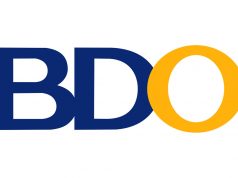ACCORDING to Greg Laurie, money is a very important topic in the bible. It is the subject of nearly half of the parables of Jesus Christ. It is covered in one out of every seven verses in the New Testament. The Bible offers 500 verses on prayer, fewer than 500 verses on faith and more than 2000 verses on money. And 15% of everything Jesus taught was on the topic of money and possessions — more than his teachings on heaven and hell combined.
I would not have a way of personally validating this claim, but I am inclined to believe in Laurie’s presentation. Clearly, a number of parables offer a lot of lessons about our finances. Jesus communicated to the community in terms they understand best which is through material possessions, although oftentimes the message offers deeper meanings.
Whenever I teach about the concept of time value of money in finance, I enjoin my students to reflect upon the parable of the talents and how the return of the same number of talents by one servant who merely hid what was assigned to him totally displeased his master. Talent, by the way, was a unit of currency in those times. While the parable can be interpreted in many ways, at its core the master expected that the money should have been deposited at the least with bankers and earn some interest. Inflation, opportunity cost and uncertainty are the rationale for money’s time value and this parable underscores this concept.
In the book, Your Money Matters written by Gary Inrig, he cited parables Jesus shared in his ministry on earth which involved financial examples and how we should view money and wealth. One of those is the parable of the shrewd manager or the dishonest steward. Some of the gems from that parable are as follows: we must recognize the limits of wealth because at the end of the day, when we die, we cannot bring anything from this world. Money is powerful but limited, temporary and temporal.
On the contrary, money is valuable when used to meet the needs of the less fortunate and when helping others with their needs. The Lord calls us to use money shrewdly, but for eternal reasons.
Faithfulness with money is primarily an issue of character. Present wealth is really a very little thing. In fact, it is not ours at all. We are stewards, not owners. If we use our present possessions as if they belong to us, we are acting exactly like the dishonest manager. We are owners of nothing, stewards of everything. What we possess is to be used to further the master’s purposes and goals. The primary value of earthly wealth is that it is a tool to train us to handle “true riches,” which refers to the affairs of the kingdom. This includes opportunities to serve the Lord in furthering His purposes on earth.
Shrewd disciples recognize that stewardship of money prevents bondage to money. We can serve God with money, but we can never serve God and money. We can only have one master and it’s quite easy to be slaves of materialism if we will not have control over it. There is no partial discipleship to Jesus and there is no part-time employment by money. Imagine how you can change money into an ally.
One of my staff comes from a different Christian faith. She shared with me her perspective about these parables and how she sees money from the bible’s viewpoint. She quotes from Ecclesiastes which asserts that money is a protection just like wisdom. The only difference is that wisdom preserves the life of its owner. One may have money and can use that to buy all sorts of luxuries in the world but when sickness comes, can the luxuries preserve his life? Not at all. But if one secures money and saves part for emergencies and contingencies, it may be deployed to address sickness in life. That we can consider wisdom in using one’s wealth.
She stressed that being rich is not bad, rather being obsessed to be rich is. For both rich and poor can be victims of greed if they will not put into proper perspective their viewpoint about money. “Money is the root of all sorts of injurious things and those determined to be rich has been led astray from faith and have stabbed themselves with so much pain.”
Investing money, creating a business, working to make a living — all these things are not bad in itself. It becomes bad when it takes the center stage of our lives and we forget our faith. We only need enough to be happy or to survive this life for “even when a person has an abundance, his life does not result from the things he possesses”.
Determining how much is enough is left to us but the our motives should be guided. Jesus used money to illustrate life lessons because people can relate to it. Yet he extended his message loud and clear — money is as good as we are in this world. The measurement of our real worth is not counted by our material possessions. It is how we use our knowledge of finance to make a positive difference in this world where money is a means for a more noble, eternal purpose.
Benel D. Lagua is Executive Vice-President at the Development Bank of the Philippines. He is an active FINEX member and a long time advocate of risk-based lending for SMEs.



